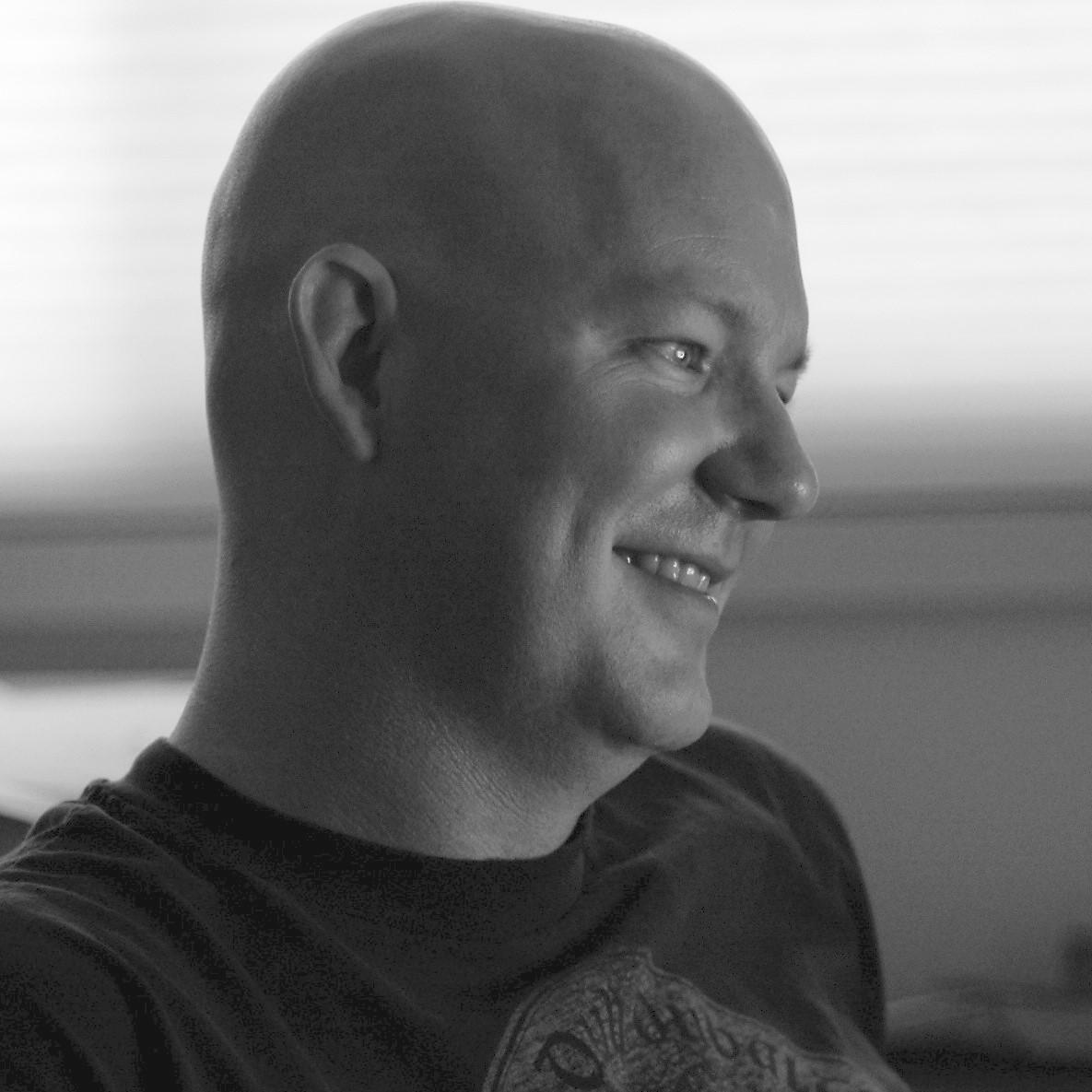The Voice of Woody Guthrie Wakes in an Antenna
in Okemah, Oklahoma They have painted me
on a building—steel strings
strung out into concrete
and air
beneath a palomino’s thunder—
and cast me in bronze or copper or
something like that
and set me in an empty lot
two blocks
from where I was born so I am always here
in this old, dark town but the voice is waking up
out of
an old 78 somewhere
in New York and out of
magnetic tape in Washington
and stars and switches in Oregon
or California, it spreads out on a wave
from Oklahoma City
to coalesce again on the tower on
the fire station’s roof
where I could see
Warn’s Furniture and the library,
the cemetery and the Canadian
River winding west
and south of town. The whole night is
a trembling sound
and even songs I’d only sung
with my pen come back to settle
in the voice, so this land is
your land and this town
is your old, dark town, the Oklahoma Hills
are yours, the oak and the blackjack
and the kiss of sand or black
dust in the prairie wind,
yours as well, so you will remember the childhood drugstore
postcard photograph
though it was not your childhood it is now, you will remember
the scene, your father will have
told you he was there and you may be
able to pick him out
of the crowd on the bridge
over the river, over the bodies
that pull down those ropes
taut as big fiddle strings
you can hear when the
wind blows or the hand,
the right hand comes down
on the dreadnaught’s E, you will remember it, even
without hands
you can hold the postcard
to the air, right over the place
as the trembling night puts the words in
the filament in your throat, pulsing
first as typewriter’s
keys and then as nerves
that shape the muscles that shape
the wind, It showed the Canadian
River Bridge / Three bodies
hanging to swing in
the wind /
A mother and two sons they’d lynched
though the postcard has just one
son, one mother, even
without hands you can hold
the photograph to the air
right over the place and see
the prairie rolling south toward
Texas, the sodium glow
of Wetumka and Tupelo campfires on
the curve, and
if you wait long enough, until
the sun begins to wake the salt
in the morning air, there,
where Durant would be, another
photograph, another
body hung from a tree,
another postcard taken just before
they take the body down
and set it ablaze, and if you wait
long enough, you’ll see
that black tornado of smoke
gathering overhead and blowing here the
last words of John Lee,
you’ll hear them cross the last words
of Lawrence and Laura Nelson
hanged just three months earlier
in the childhood photograph
that shows everything but the baby, Laura’s baby, the one thing
they did not hang,
which must be crying somewhere,
and then you will understand
the second son in the song
the night remembers to your throat is the cry of the child
that doesn’t die there, the cry that stays
and slowly lathes itself
into the picture, the cry that calls John Lee the hundred miles over the
prairie to be here in the scene
you see from the signal tower on
the firehouse
in downtown Okemah, and you will see, as the morning pulls the
song from your throat,
as you scan the horizon, Ada,
Anadarko, Tulsa,
all the photographs still hung over their places in the air,
you will hear all those last words
still trembling, even without statues,
and this town
will be your town, these words
will be your words. You will never
stop saying them. Their wind will be your wind. for Brian Barker Inscription for Air For John Earl Reese, shot while dancing in a café in
Mayflower, Texas, October 22, 1955 Not for the wound, not for the bullet,
power’s pale cowardice, but
for you, for the three full syllables
of your name we hold whole
as a newborn by the feet, and so
for the cry, the first note, the key
of every word to follow, the timbre,
the tone, the voice that could sing
Nat King Cole’s “If I May,” and slow-
dance the flipside, the blossoms
fallen like a verdict to the jury’s lips,
not to the blood or the broken
glass or the spider’s silking juke-
box wires in a junkman’s shed,
but the fingers’ heat still on the dime
when it slides to the switch,
the lamp on the platter, the groove
that tells the needle what to say,
and the pine boards of the café floor
once moved by the locusts’ moan
now warm as a guitar’s wood, revived
with all the prayers of song, Amens
that flame when a blues turns bright,
not for what was lost, but what
was lived, what is written here,
in the night, in vinyl, in the air,
for the bead of sweat at the hair’s deckle,
the evening star in the trees,
soda pop sugar wild on your tongue and
for the tongue telling Saturday night
something of Sunday morning, fluent
as a mockingbird,and for the hand
that opens as if in praise, as if in prayer,
asking for another to fill it there,
for the smile and for the smile of skin
behind the ear where love might lip its name, for you,
if we may, pull back the arm
and start this music once again. Reprinted from ABIDE by Jake Adam York with permission of Southern Illinois University Press and The Crab Orchard Review. Copyright (c) the estate of Jake Adam York, 2014. | 









